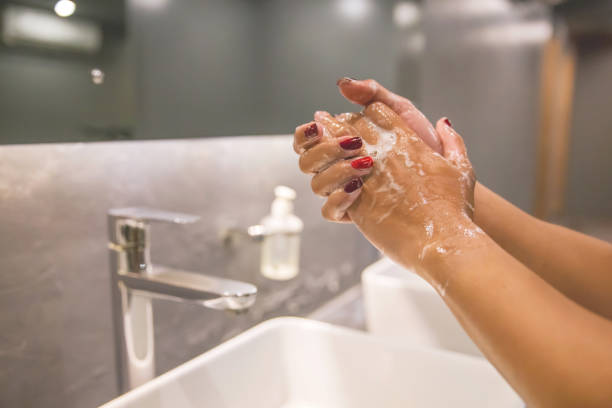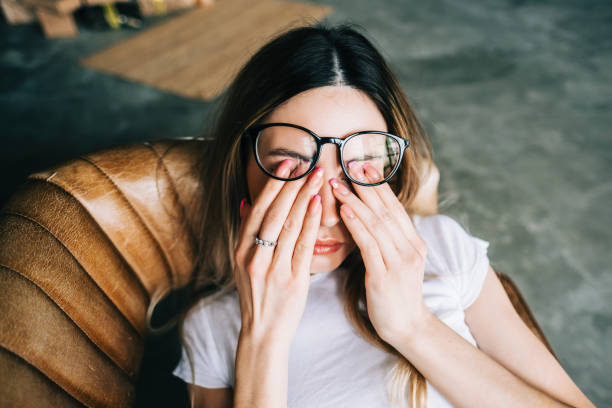Many people are experiencing anxiety about post-pandemic life. This may feel puzzling and confusing; after all, we all felt overwhelmed by the quarantine. For the longest time, we couldn’t wait to go out again and have things return to ‘normal.’ The idea of being resistant to socializing, previous school and work formats, and public events might surprise you. When you worried so much about surviving the pandemic, you might now find yourself feeling worried about letting go of the routines that came with it. You may feel excited about the prospect of going to the movies or eating dinner in your favorite restaurant but still feel worried and overwhelmed at the same time.
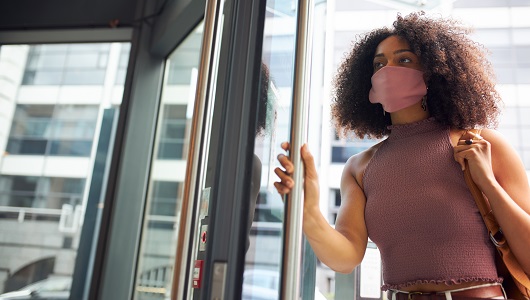
COVID-19 has undoubtedly been a historical event, and it has been a mental health crisis as much as a physical health one. The sudden changes in our lives, coupled with the isolation caused by social distancing, the challenges of parenting and working from home, and the tremendous financial stress caused by unemployment, triggered emotional distress for many, and for some, worsened pre-existing mental health issues. Why do you feel anxious about something you have been waiting – and hoping – for? Let me first say this: You are not alone, and feeling anxious is a completely valid response. And the concerns we feel here in Woodland Hills, CA, are not unique to our location. It’s such a widespread issue that Brené Brown and Priya Parker recently discussed the anxiety of gathering again on the Dare to Lead podcast. This is a major adjustment to make, and struggling to make it is in no way a sign that you are doing anything wrong.
Three reasons why you might be having a hard time adjusting to post-pandemic life:
1. You might be feeling anxious about going back to “normal” social interactions:
We have been fighting a contagious and deadly virus that threatened our safety; there will be some anxiety as we attempt to transition out of this state of mind. Our minds are not a light switch that

we can turn on or off. The pandemic has been traumatizing, and it can be hard just to move on and feel safe outside of your home after spending so long being told that it was the only safe place to be. There will be anxiety, fear, and discomfort around being in public places in crowds, standing close to others, hearing someone cough or sneeze. Even common social norms such as handshakes may not be something you will feel comfortable with for many months to come. Part of the anxiety is also because there is still some valid uncertainty about how everything will look. For the most part, our lives before had a routine of sorts or predictable patterns. Many of us were able to plan a trip in advance. But the past year has been filled with waiting and seeing. Would our annual family trip to the cottage be permitted or considered a safe trip to take? Would we be able to get together with our loved ones for a bbq or a holiday dinner? Our new default function is to be unable to commit to any sort of plan. Asking ourselves to make the mental shift in predicting upcoming scenarios with enough certainty to commit to them and feel safe attending is asking a lot.
2. You might be feeling sad about losing the close daily interactions you had with your loved ones:
The people you share your home with, whether it is your parents and/or siblings, roommates, or with a partner (with or without kids), have probably driven you crazy at times during lockdown. While being underfoot of one another was probably a challenge, you may experience an unexpected sadness of this chapter coming to an end as you approach the end of quarantine. You might wonder if you are going crazy, but rest assured that your feelings are healthy signs of closure.
This unprecedented time in our lives has given most of us unprecedented access to the people we love, even if that was remote access for some. Work-from-home arrangements may have led to greater flexibility and made scheduling a Zoom date with that friend on the other side of the country ten times easier than in the past. Remote learning may have been tough to balance, but the conversations it sparked with your kids might have given you incredibly satisfying access to who they are and how they feel about things. Perhaps you or your partner were temporarily laid off during the pandemic and had previously been working opposite schedules. Maybe you had a couple of months together in more similar routines, and that meant the world to you.
These increased interactions were also taking place during a time when there was a real danger of losing a loved one to a deadly virus, often painting these moments and events with greater significance than if they had occurred in everyday life, where everyone was healthy and no one was worried about the possibility of losing one another. The value that that context has put on your time with loved ones during the pandemic has made it all the more special and important, and therefore all the more difficult to give up.
3. You may have unresolved feelings that need to be addressed:
We are wired for survival; our minds want to keep us safe and survive adversity. Because of this, our minds can sometimes lean on unhealthy defense mechanisms, one of which is repressing emotions. When going through difficult times, we buckle down and tackle the issue. We don’t stop to think about how we feel; we don’t hesitate to ponder nuanced repercussions; we get to work fulfilling our most basic needs and do what needs to be done to handle the crisis.
However, once the crisis is resolved, we may notice unfamiliar feelings surfacing. Those might be feelings associated with the crisis that we have not yet had the chance to identify, sit with, and process. As
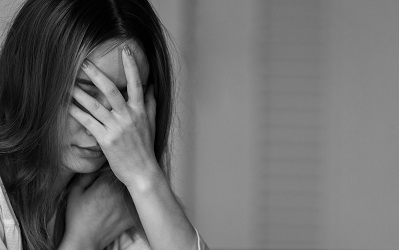
you prepare to exit the restricted and virtual lives, you may find it hard to “return” to your post-pandemic life if there are emotions you have not yet processed. You may have an immunocompromised loved one or someone who already has illnesses that impact the function of the heart and lungs. You may have known someone who passed away (whether due to COVID-19 or not), and you were not able to gather to grieve in a traditional sense at the time.
If you are someone who has worked as a frontline or essential worker the entire way through the pandemic, you probably had to convince yourself of your own safety to walk out the door every day and go to work. As the threat lessens, you may find your mind debriefing the situation in more detail; you may finally feel safe enough to allow yourself to fully comprehend the risk you were taking in clocking in at work every day. This may feel overdue, and you may feel irrational to be panicking in hindsight. Remind yourself that how you are feeling now is simply the way you weren’t able to feel when you were in survival mode and that it is just as valid and real now as it would have been a year ago.
After spending so much time waiting for the pandemic to be over, it can feel isolating to struggle with its end. You may fear speaking out about your anxiety, lest you be perceived as ungrateful. There are ways for you to work through your emotions privately and ways to validate the steps you need to take to feel as happy and safe as you can.
4 Tools for Dealing with Post-Pandemic Anxiety!
1. Take small steps to adjust to your post-pandemic life:
I suggest you journal about aspects of the post-pandemic life that you are feeling anxious and nervous about. Once you know the specific aspects that might be most anxiety-provoking for you, you can then prioritize and identify small steps you can take. For example, if one of the sources of your discomfort is being in crowds again, I would suggest starting to be in small groups that consist of six people. Gradually increase the size of the group to help yourself slowly get back into the way things were.
For another example, if your discomfort is about not eating indoors, you might want to stay indoors, like in a cafe, for a short period of time, then gradually increase. In the past, you may have run errands at several locations in a row to get things done but have adjusted your routine only to go one place at a time. This might be because the work of going out in public and being vigilant is exhausting, or because you prefer to return home to thoroughly wash your hands and disinfect everything you picked up on your errand or both. Try going to two places in a row, then three. Reflect on your habits and see if you need to run several errands in a row or if you can make your days work by doing less at once. What feels comfortable for you now? What would be the most convenient, the most flexible, the most satisfying? Work toward those feelings.
2. Validate your feelings:
Check-in with yourself as often as you need to. Normalize your experience and feelings by reminding yourself that whatever is happening around you is a real experience and has a real impact on your state of mind and wellbeing. Name your feelings as accurately as you can and give yourself time to process them. Many of us have experienced the discomfort of “toxic positivity”; someone telling us “it could be worse” or “you’ll get over it.” We may tend to speak that way to ourselves as well, thereby diminishing our actual needs. Be compassionate with yourself when you feel a feeling that isn’t convenient: “I am feeling anxious to return to ‘normal, and that’s okay.” If you are seeking a neutral space to communicate your feelings, you may want to consider enlisting the help of a therapist for this transition. Do your best to take on your emotions as often as you can, rather than suppressing them for a later date.
3. Give yourself permission to express your needs openly and assertively:
If you want to ask others whether they are vaccinated or not, give yourself permission to ask. If you are curious if the dinner will be indoor or outdoor, or how many people will be there, give yourself permission to ask. Remind yourself that
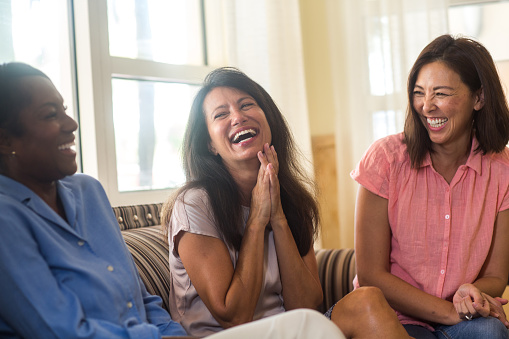
you do not need to apologize for calmly asking simple and polite questions. If someone is offended that you would like to know if anyone invited to a gathering has been on a plane in the past fourteen days, that is that person’s issue to unpack. Make a plan for yourself about what you will do if a boundary is crossed or a need is disrespected, and practice it beforehand. Explain to those who are anxious to reunite that you are still keeping your bubble small as you adjust to post-pandemic life but that you would be happy to meet online or meet outdoors, whatever feels best for you.
4. Create a new routine:
As we are coming out of quarantine, we have to yet again make changes in our daily routines. It is essential to ask yourself, “What are the things from my pre-pandemic life I do not wish to resume or bring back?” and “What are the things from my pandemic life I would like to keep and continue to do?” Let go of old routines with respect and gratitude; it is okay that they no longer serve you.
Viewing the pandemic as a trial run for a new and improved lifestyle may help contextualize transitioning out of lockdown (and lockdown itself) positively. Give yourself permission to seek the flexibility of working from home or to make time every weekend for brunch with your sister.
You may have missed some people desperately, and have now resolved to spend more time with them. Have fun figuring out how to make that happen!

While there has been profound research conducted to help us safely come out of the pandemic, this transition has created new mental and emotional distress levels to cope with. Gauging the full mental health impact of the past year will undoubtedly take place over the several years of data analysis. We may not have all the answers now. Still, one thing is for sure: the stress, the isolation, the fear, the grief and loss, the disruption, and the stagnation have not been minor inconveniences. Adjusting to life beyond this time in our history is not an easy undertaking, and there is no reason to feel bad about yourself if it is a struggle for you. Be kind to and patient with yourself. Revisit and modify your tools as needed.
Embracing You Therapy Group Practice
Here at Embracing You Therapy, we invite you to explore with us how life would be different if you had more control over your thoughts and emotions, and we invite you to consider that it is possible to accept things just as they are, embracing imperfections to create a gentler place for calm in your life.
Let’s learn what drives your unique perspective on anxiety and stress. Then, let’s find the tools-your unique tools-that help you respond to life in a healthy, calm way. Contact us today for your complimentary 15-minute phone consultation with one of our Client Care Coordinators.



